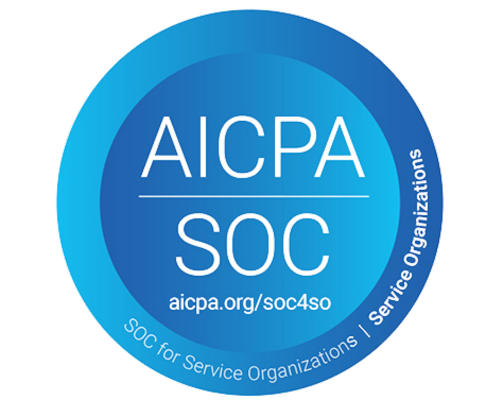ACA Deadlines Are Approaching: Tips for Avoiding the IRS Reconciliation Process

As you’re gathering and reviewing your employees’ information to get ahead of the March 1, 2024, Affordable Care Act (ACA) reporting deadline, you notice that one of your employee’s Social Security Number (SSN) doesn’t match the records maintained by the Internal Revenue Service (IRS).
While the looming deadline may raise concerns, there's no need to panic. Addressing SSN discrepancies and common errors now can be the key to saving your organization from hefty fines and penalties in the future.
We'll help you navigate the intricate terrain of the IRS reconciliation process and understand why reconciliation is vital for
ACA reporting compliance. We’ll also explore the potential fines and penalties for noncompliance, and provide a practical solution to help you remain in compliance well ahead of the filing deadline.
Why Does IRS Reconciliation Matter?
Now, let’s focus on the intricacies of the IRS reconciliation process and explore why it's a vital component of ACA reporting compliance. Ensuring accuracy in SSNs and names submitted to the IRS is not just a regulatory requirement; it's a strategic move that prevents complications down the road.
Accuracy in ACA reporting is not merely checking a box; it’s vital to maintaining Affordable Care Act compliance. Inaccurate SSNs can lead to a cascade of
errors in ACA reporting. One of the most common mistakes is a mismatch between the employer identification number (EIN) and the legal name of the company.
In addition, mismatched employee names and SSNs are another common mistake. These errors, while seemingly innocuous, can lead to significant compliance issues. Review EINs and legal names before submitting to the IRS, checking for misspellings and improper characters, and ensuring the EIN and company name are identical.
From mis-attributing coverage to failing to identify eligible individuals, these errors not only compromise compliance but also expose your organization to financial risks. IRS reconciliation acts as a preventative measure, minimizing the likelihood of such errors and the associated consequences.
Fines and Penalties for ACA Noncompliance
Understanding the potential fines and penalties is crucial for motivating proactive adherence to ACA guidelines. These include:
Letter 226J - Employer Shared Responsibility Payment (ESRP):
- Trigger: Employers not offering affordable, minimum essential health coverage may receive Letter 226J, assessing Employer Shared Responsibility Payments (ESRP).
- Penalty Calculation: The ESRP is calculated based on the number of full-time employees receiving premium tax credits for marketplace coverage.
- Response Window: Employers have a limited time to respond to Letter 226J, providing evidence to contest or reduce assessed penalties.
Failure to File Correct Information Returns (Section 6721)
- Penalty Amount: The IRS imposes fines for failing to file correct information returns, including Forms 1095-B and 1095-C.
- Severity: The penalty amount varies based on the timing of correction. For instance, higher penalties apply if corrections are made after August 1.
- Per Violation: The penalty is assessed per incorrect form filed, and it can accumulate rapidly if multiple forms contain errors.
Failure to Furnish Correct Payee Statements (Section 6722)
- Penalty Amount: Similar to failure to file, penalties are incurred for failing to furnish correct payee statements to individuals.
- Timeliness Matters: The timing of corrections also influences penalty severity. Prompt correction is rewarded with lower penalties.
- Per Statement: Penalties are applied per incorrect statement issued to covered individuals.
Intentional Disregard (Section 6721 or 6722)
- Penalty Amount: If noncompliance is deemed intentional, penalties can be significantly higher. The IRS may assess penalties under both Section 6721 and Section 6722.
- Intent to Defraud: Intentional disregard implies a willful intent to defraud the IRS, or the covered individuals. Penalties are severe and can amount to substantial fines.
Annual Penalty Caps
Cap on Total Penalties
There are annual caps on the total penalties for failure to file correct information returns and failure to furnish correct payee statements. These caps are determined by the size of the organization.
IRS Abatement Considerations — Reasonable Cause
Despite the discontinuation of "good faith" relief by the IRS for errors related to missing SSN/name mismatches, employers can still seek relief through the "reasonable cause" provision.
To qualify, employers must demonstrate that mismatches result from factors beyond their own mistake or neglect. The IRS has the authority to waive penalties completely when errors are attributable to circumstances outside the employer's control, like false or incorrect information provided by an employee.
Consequently, employers are strongly urged to proactively take steps to ensure accuracy and promptly rectify any mistakes to enhance compliance and avoid potential penalties. Employers will have to prove that they took diligent steps to correct any errors and document those steps if they receive a penalty notice from the IRS.
Noncompliance can also result in reputational damage, eroding stakeholder trust. Additionally, dealing with penalties consumes valuable resources, diverting attention from core business operations.
ACA Reporting Software: A Practical Best Practice for ACA Compliance
HRlogics ACA was the first technology company to help employers tackle the complex landscape of healthcare and employment reporting and compliance and remains the industry leader in expert customer care. Our innovative Clear ACA software streamlines the process effortlessly with a self-service option, employing advanced technology and a user-friendly interface. Total ACA by HRlogics transcends being only software; it’s your ally in ACA compliance management, offering expert guidance, proactive assistance, and continuous monitoring to minimize IRS penalties by a tenured ACA expert.
Have Questions or Need More Information?
We will get back to you as soon as possible.
Please try again later.


HRlogics



